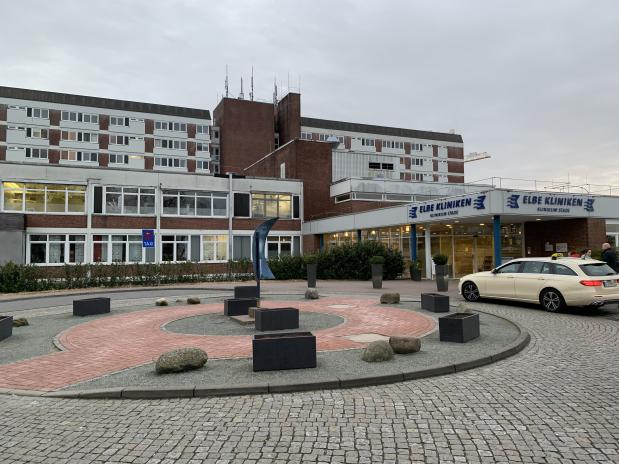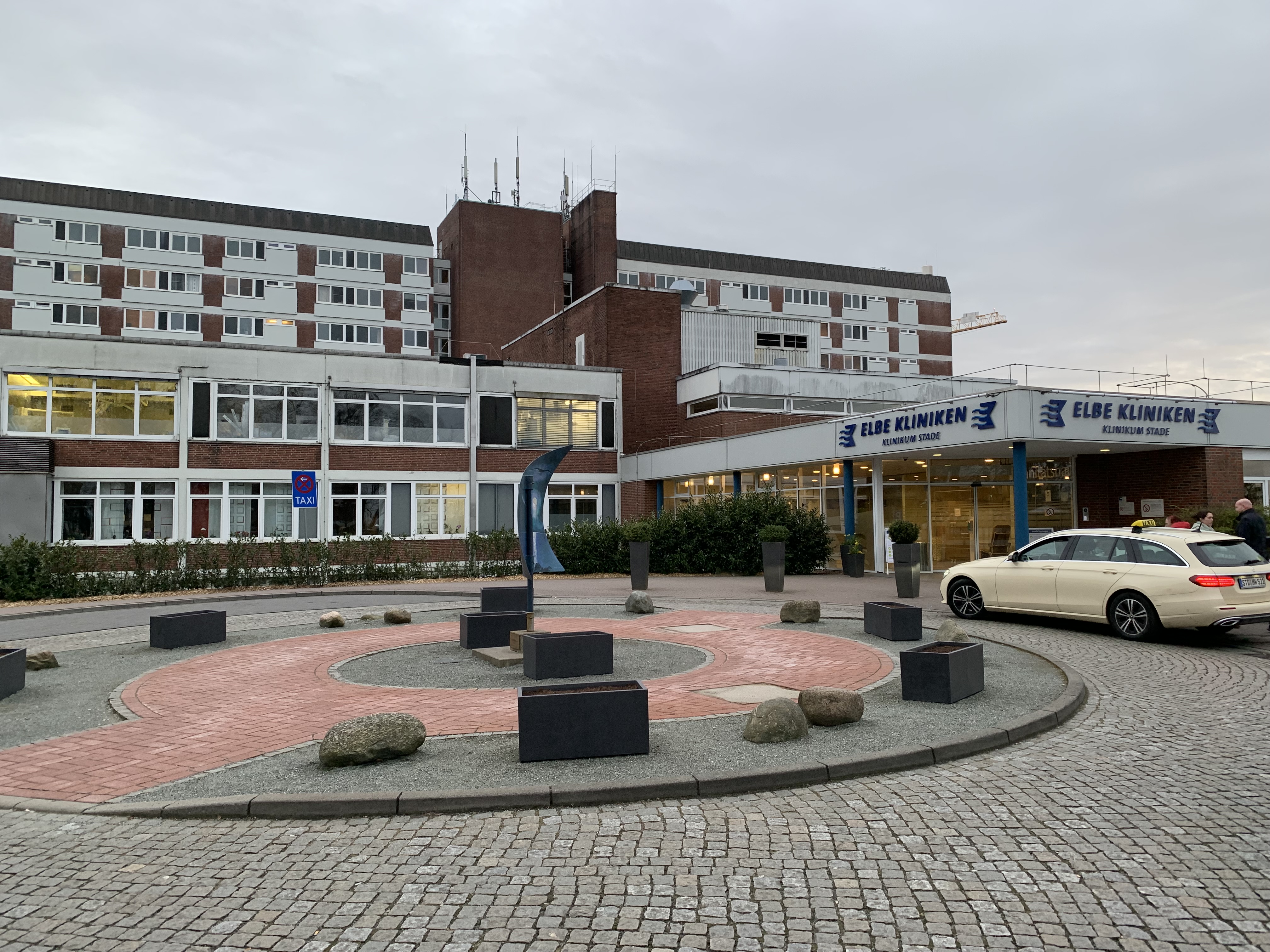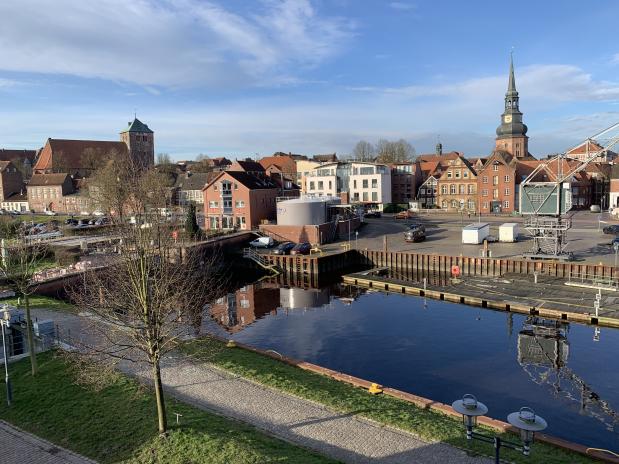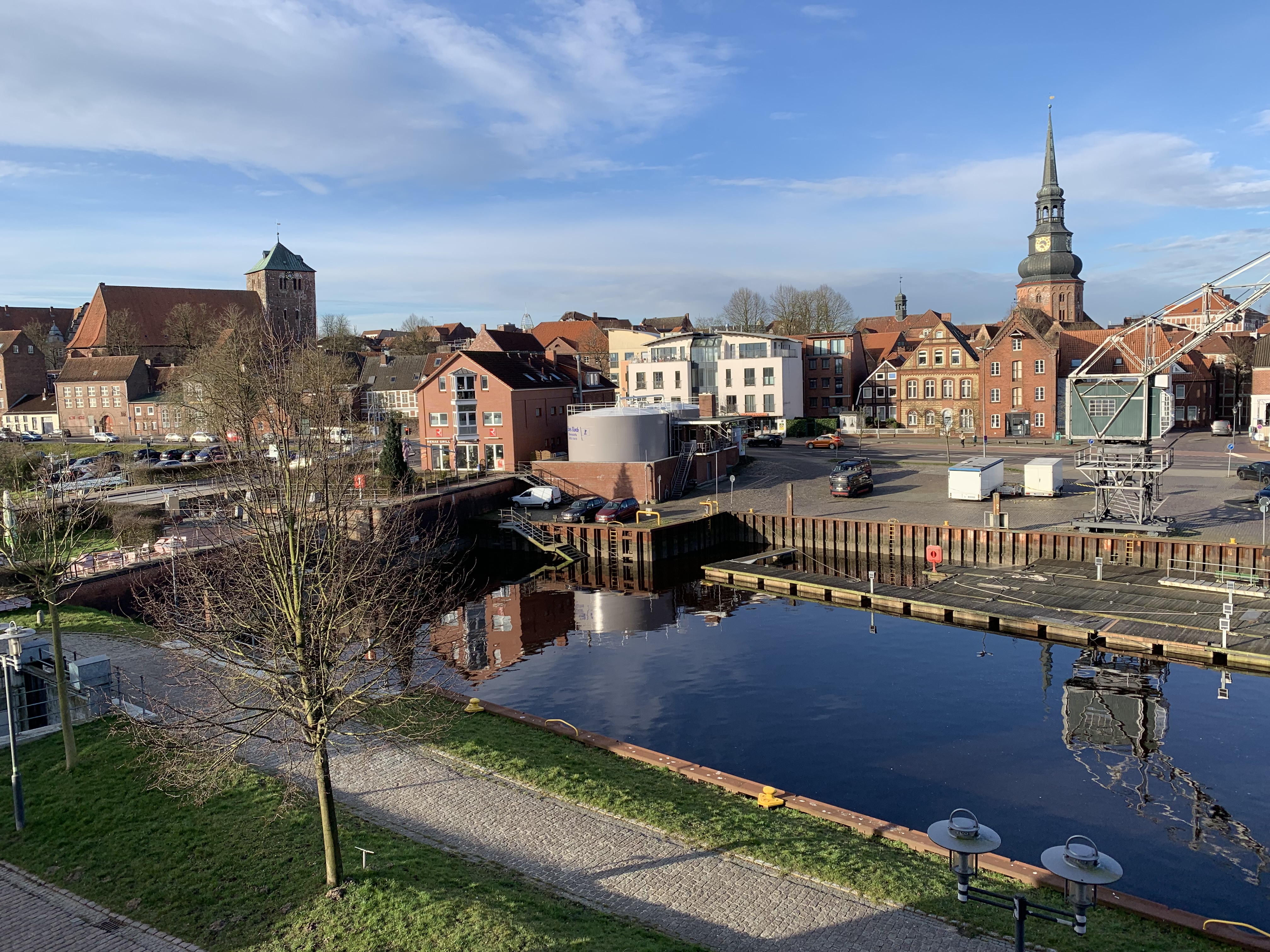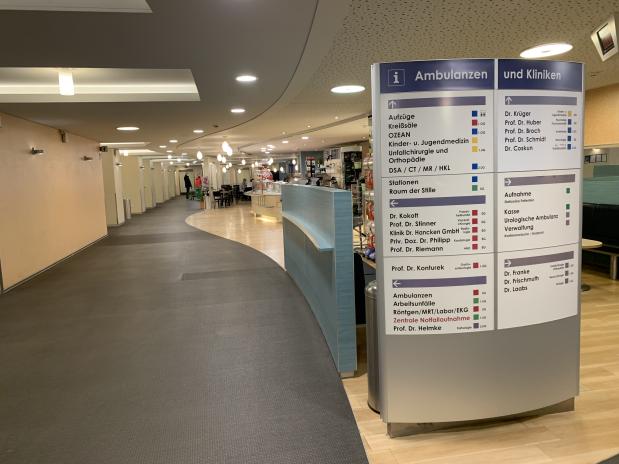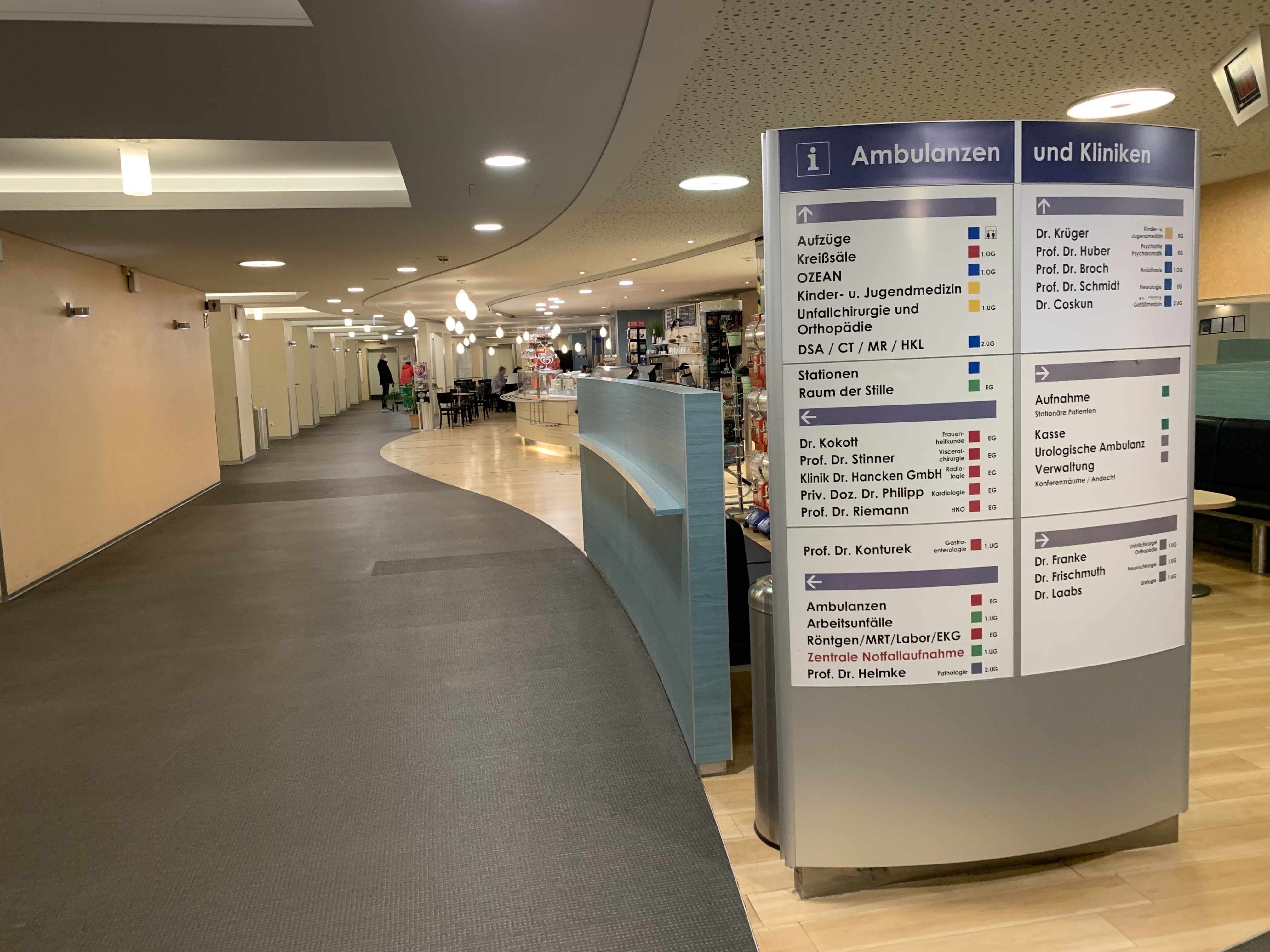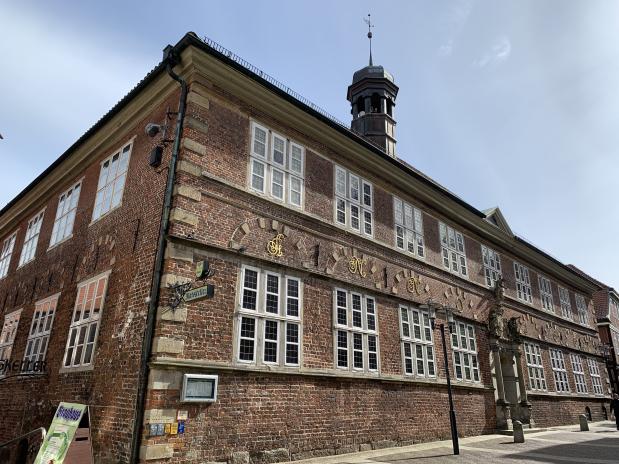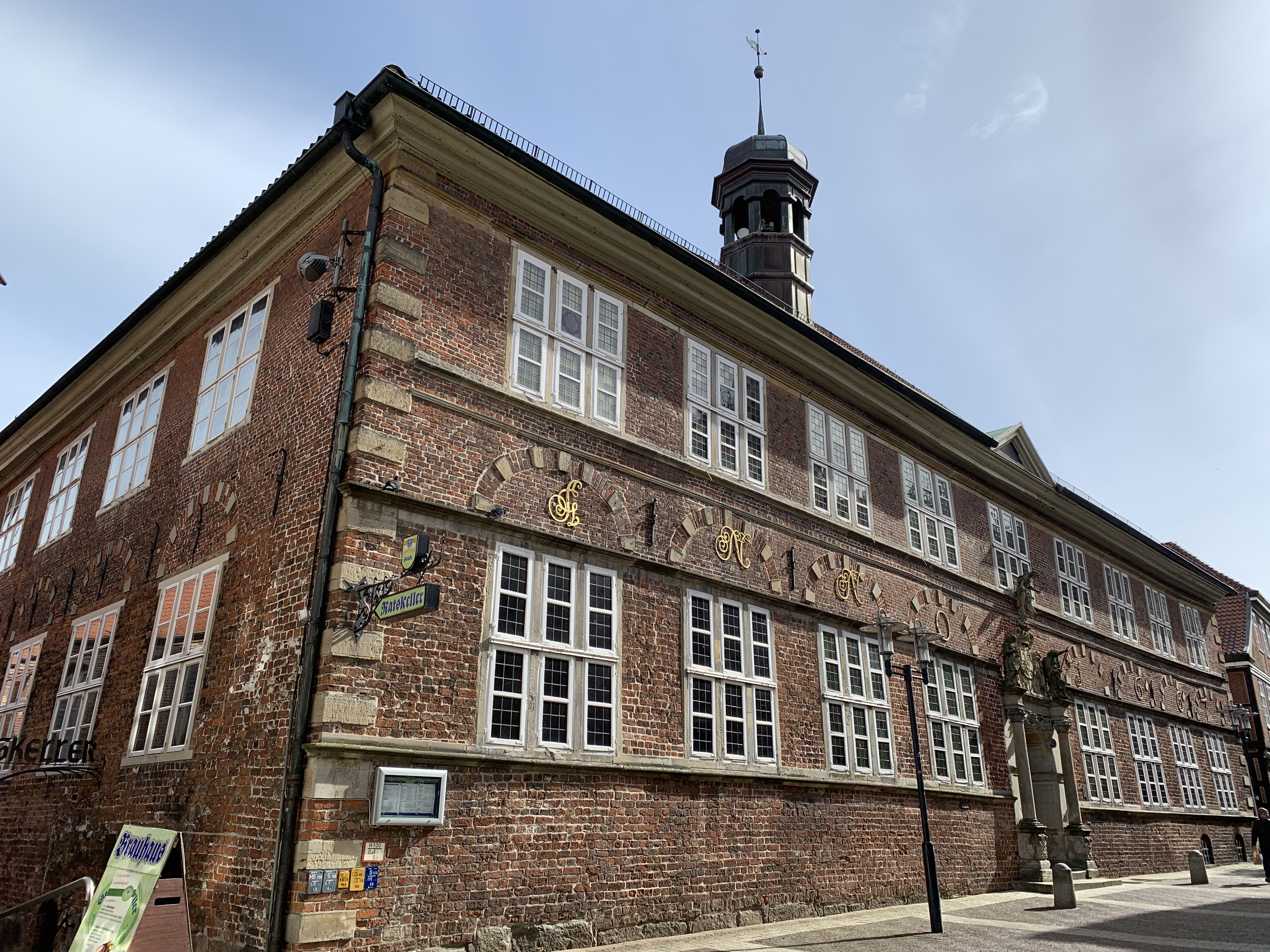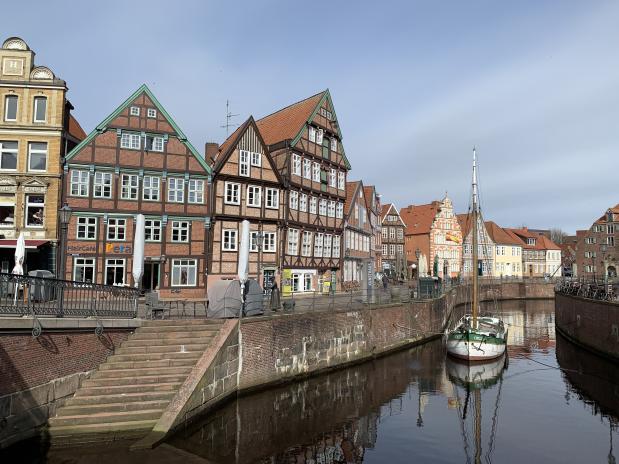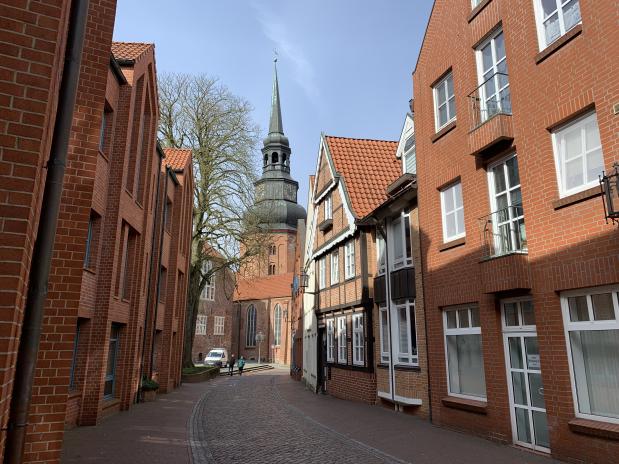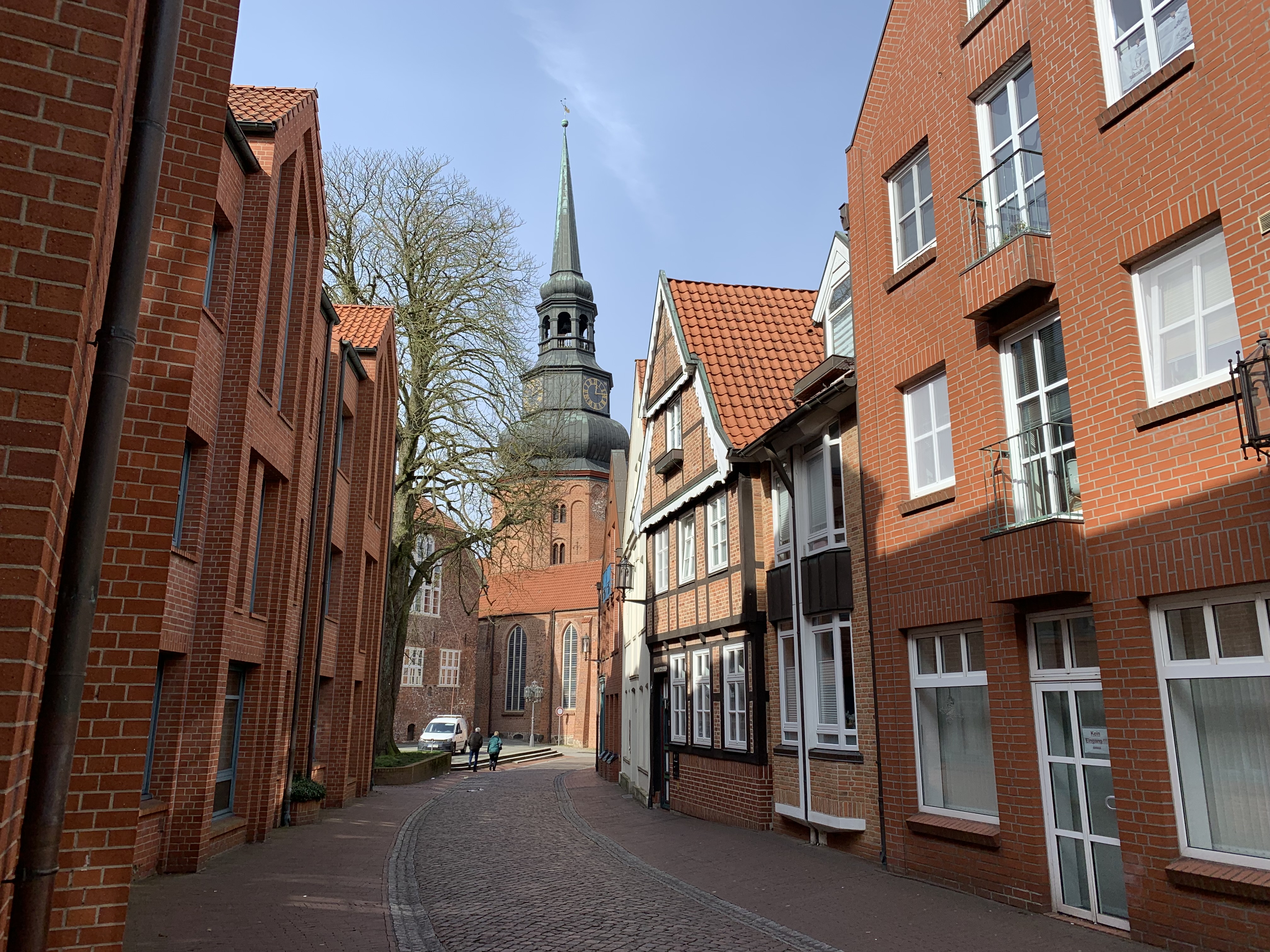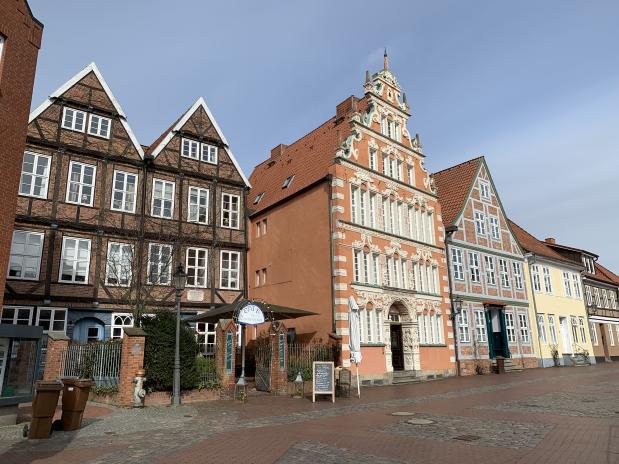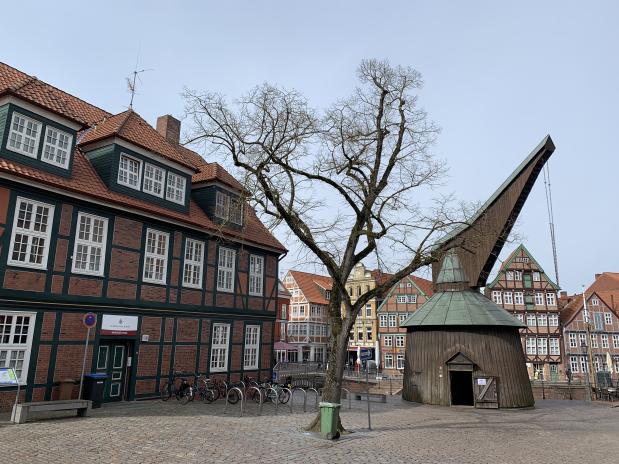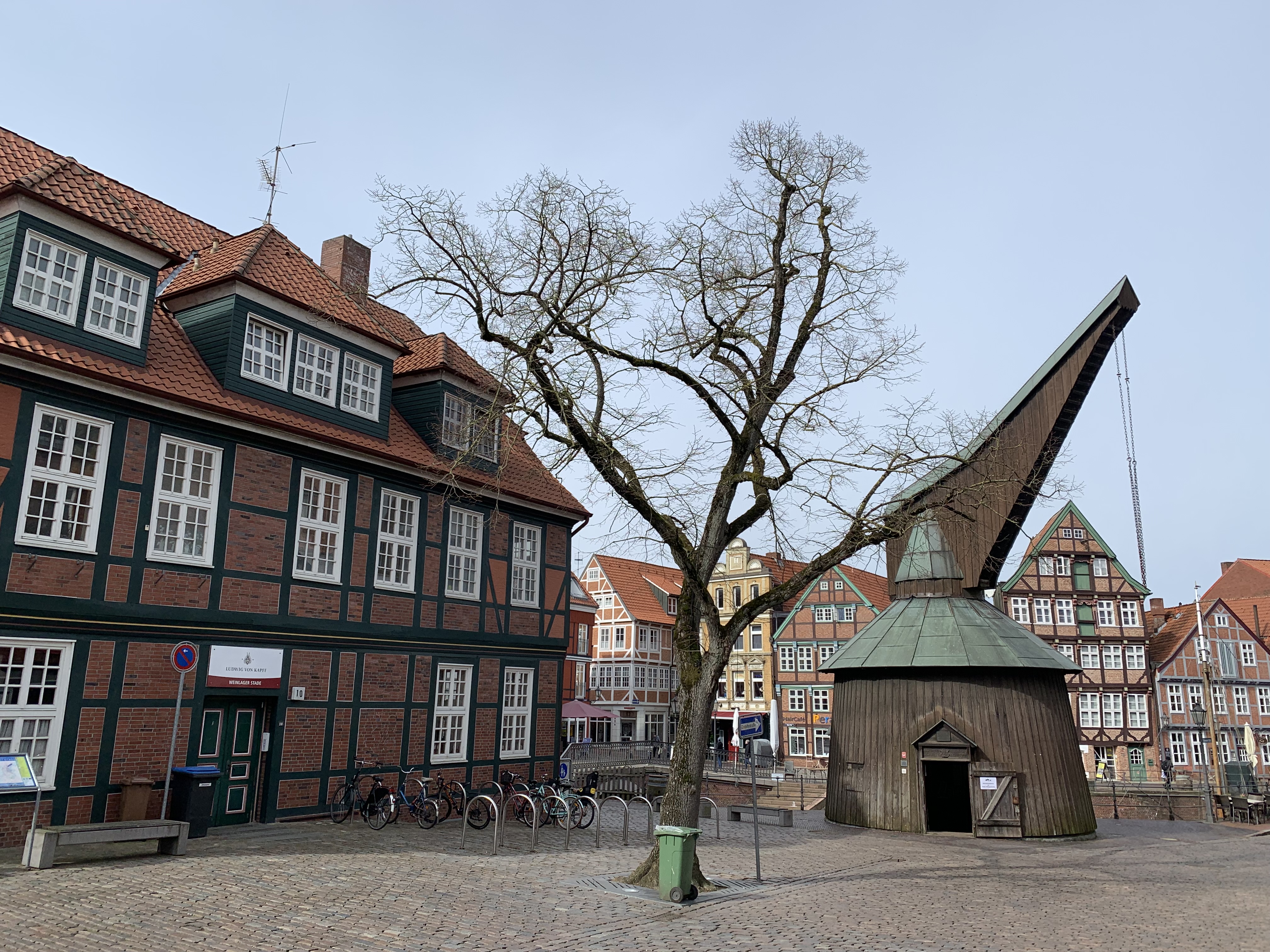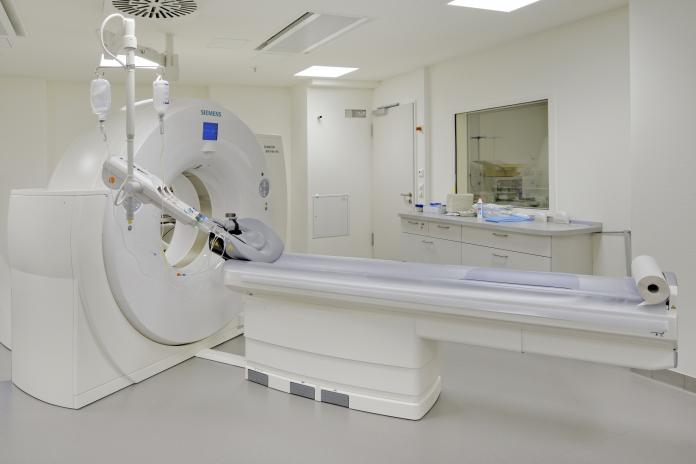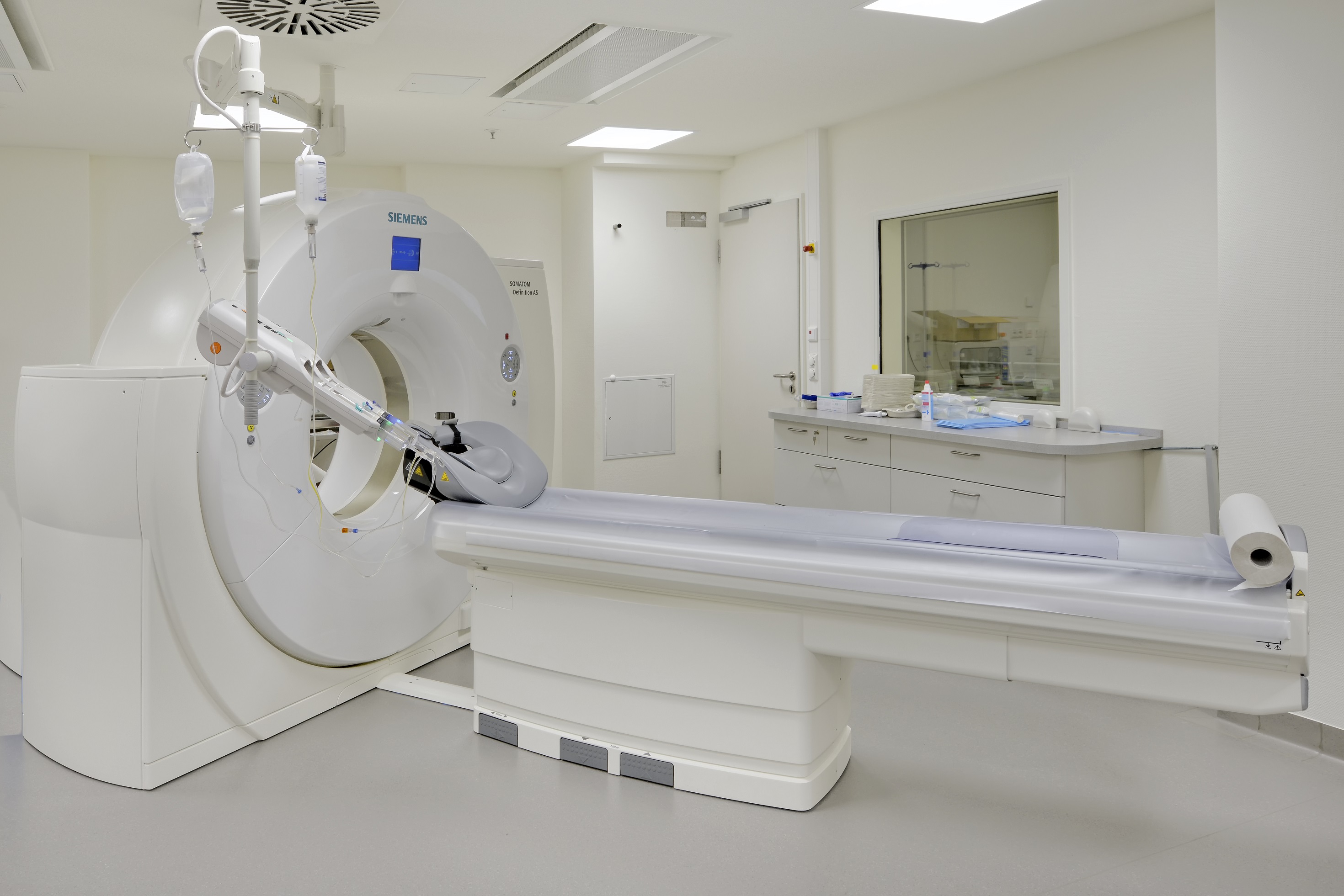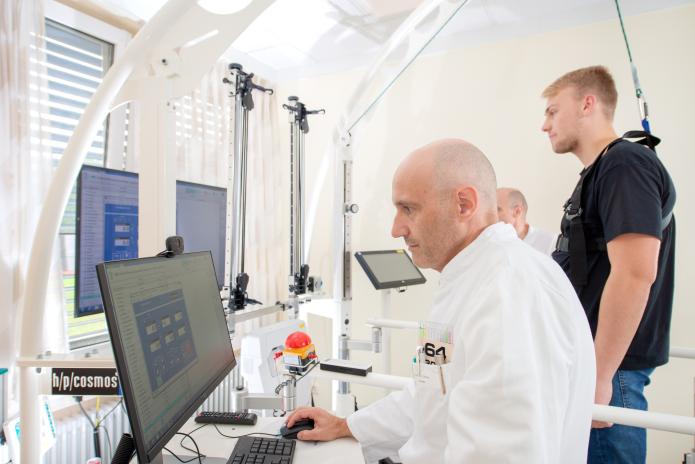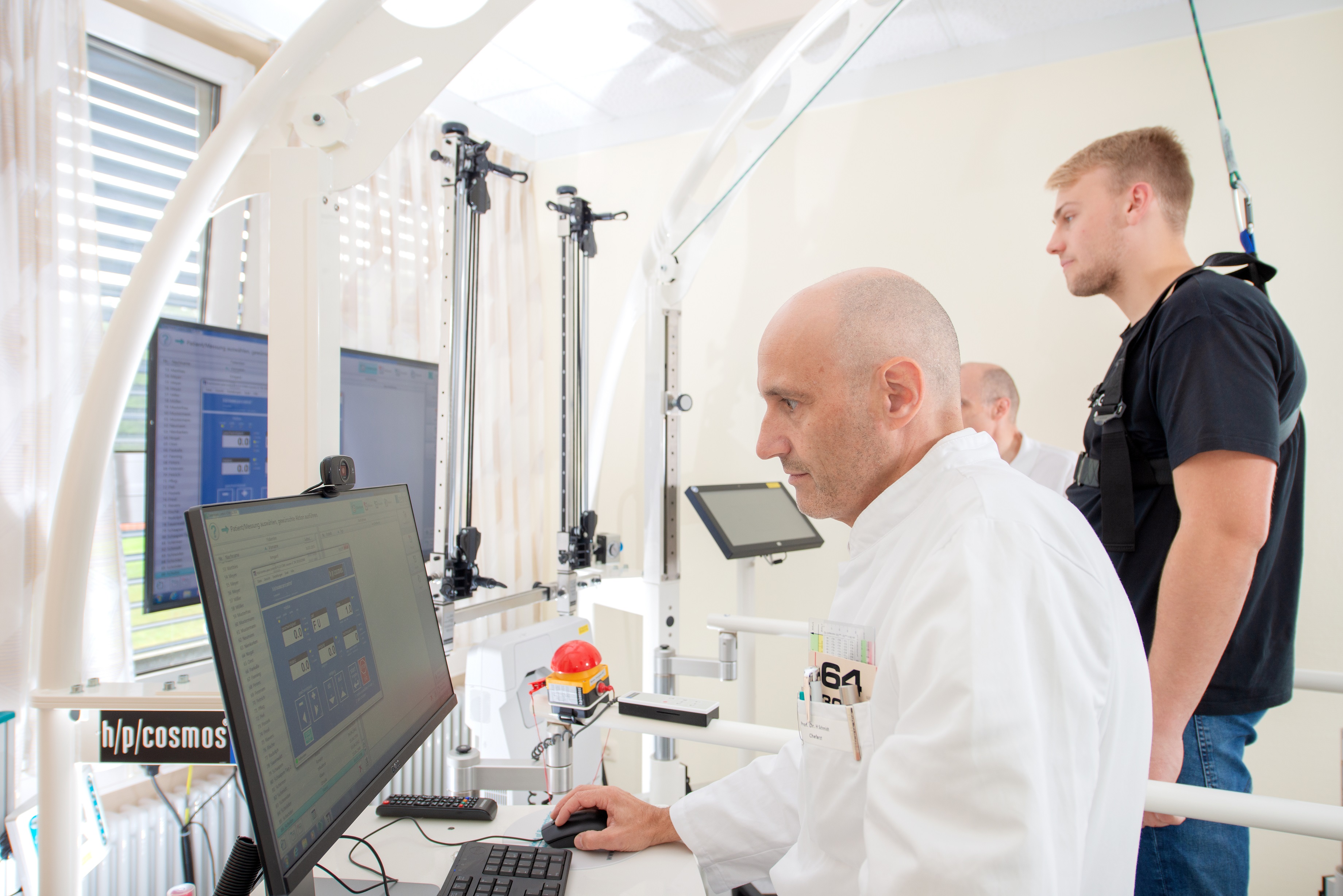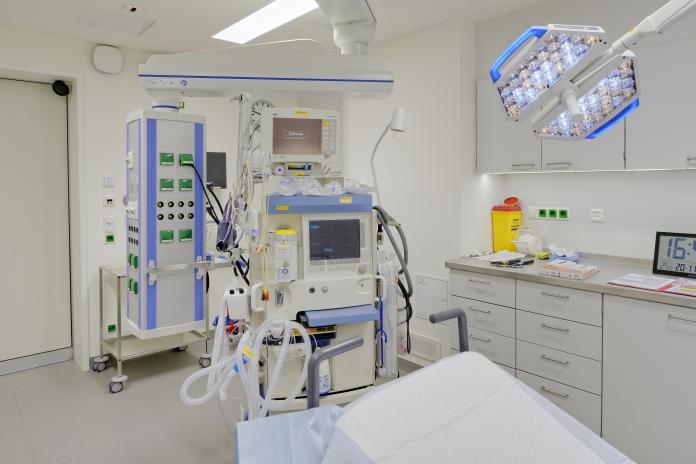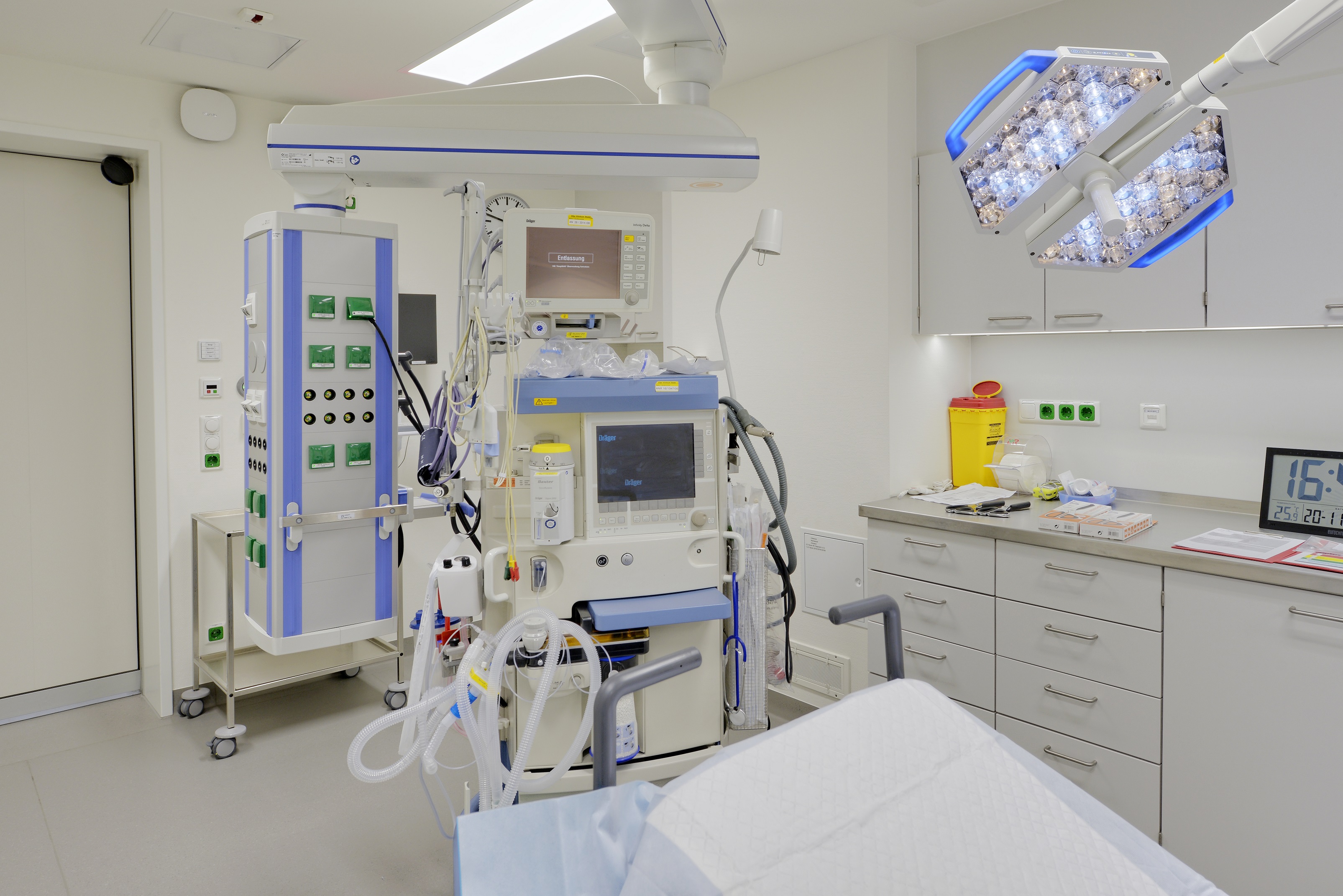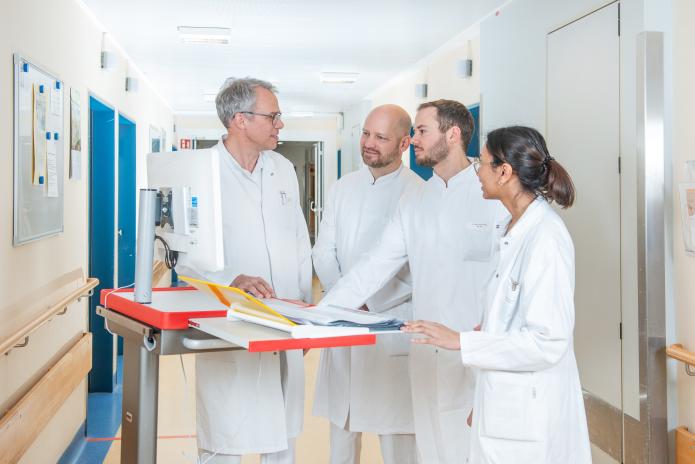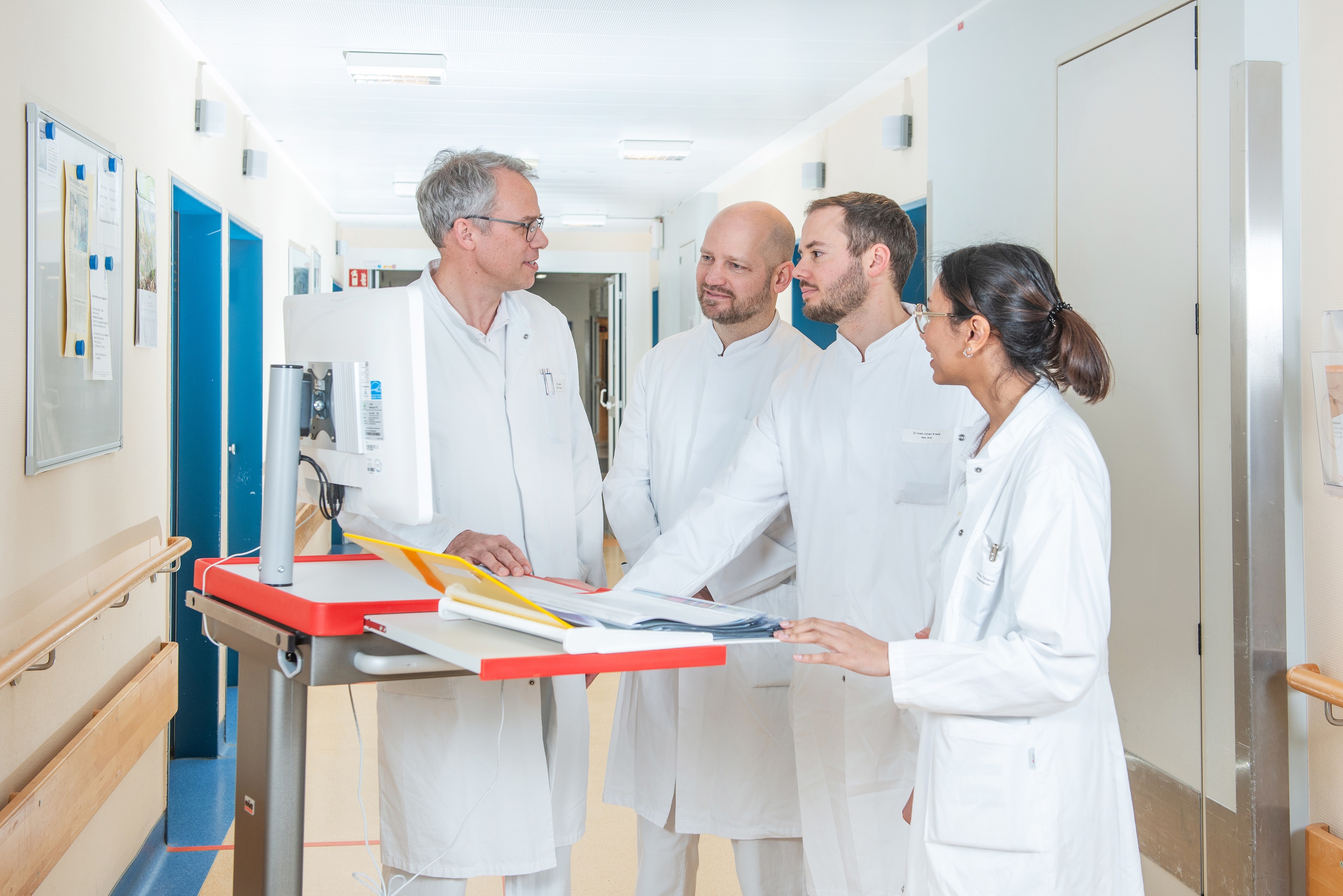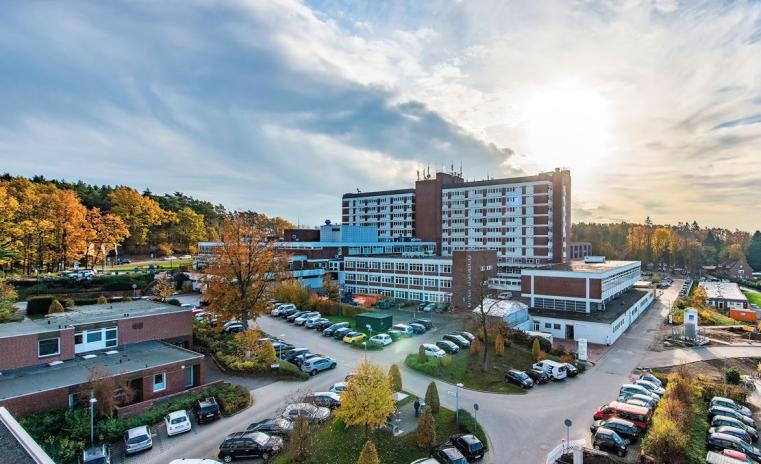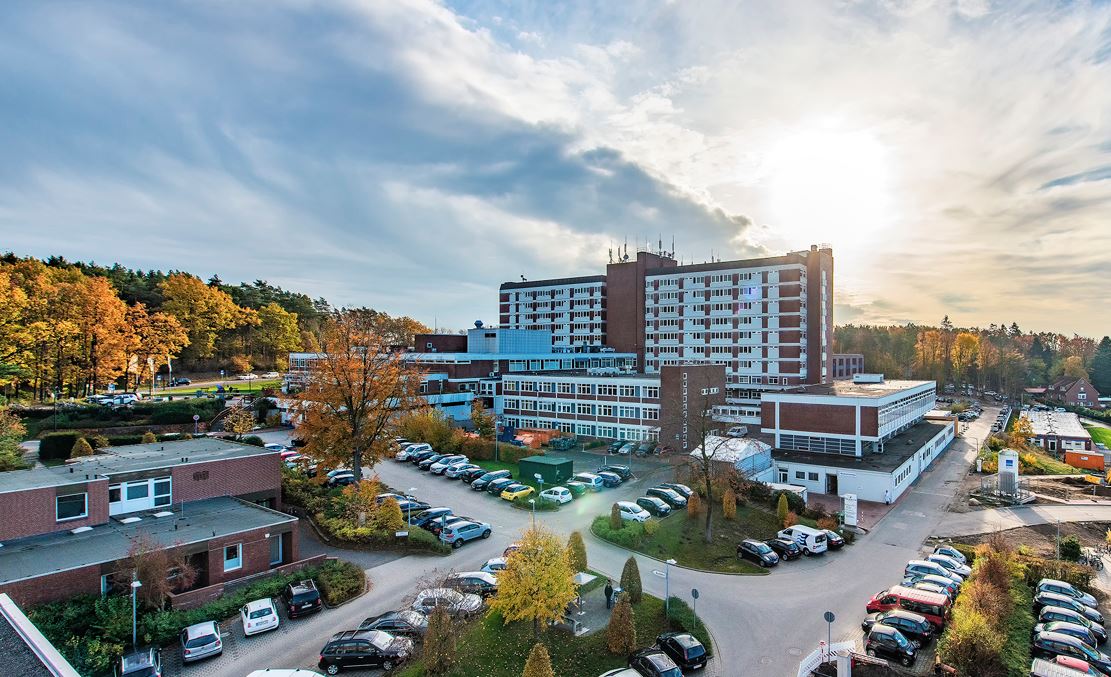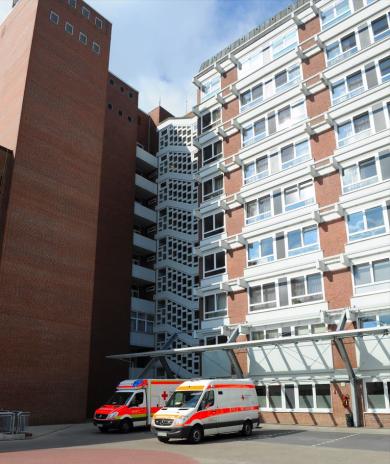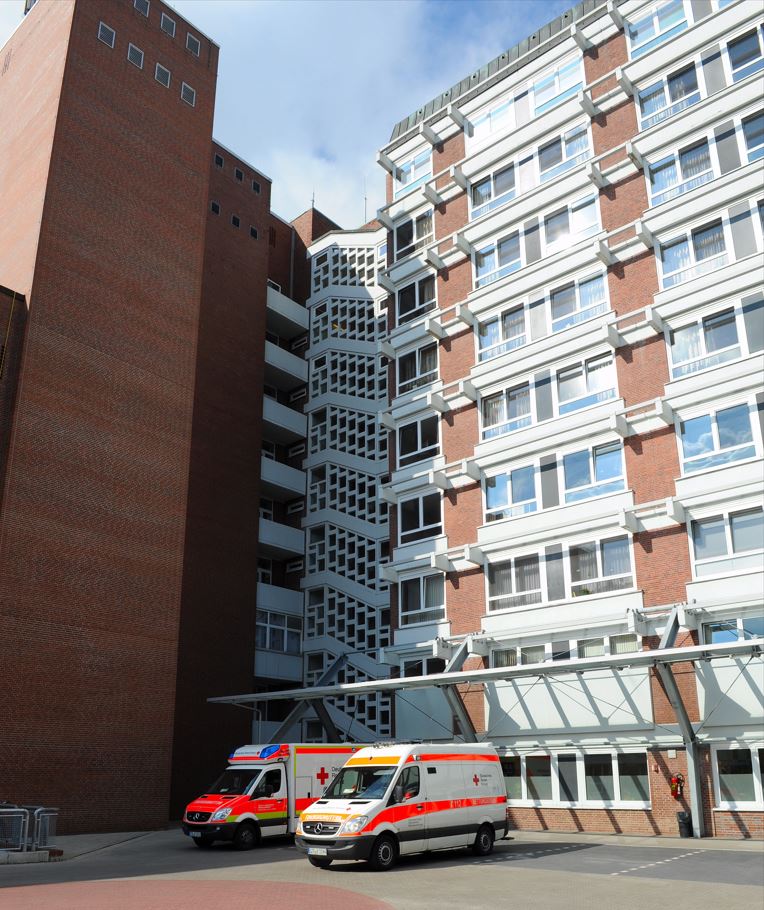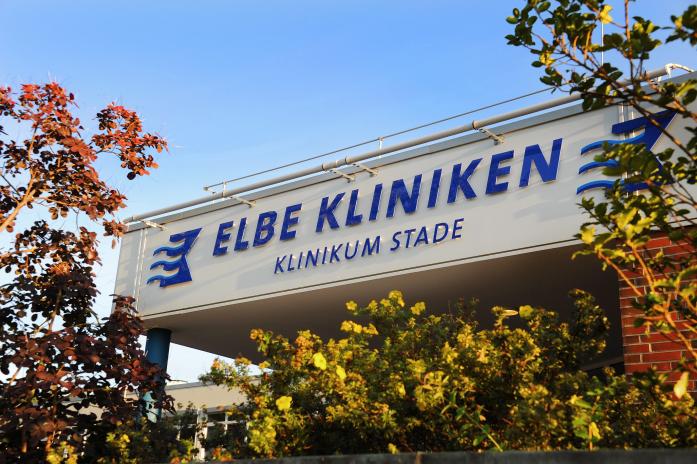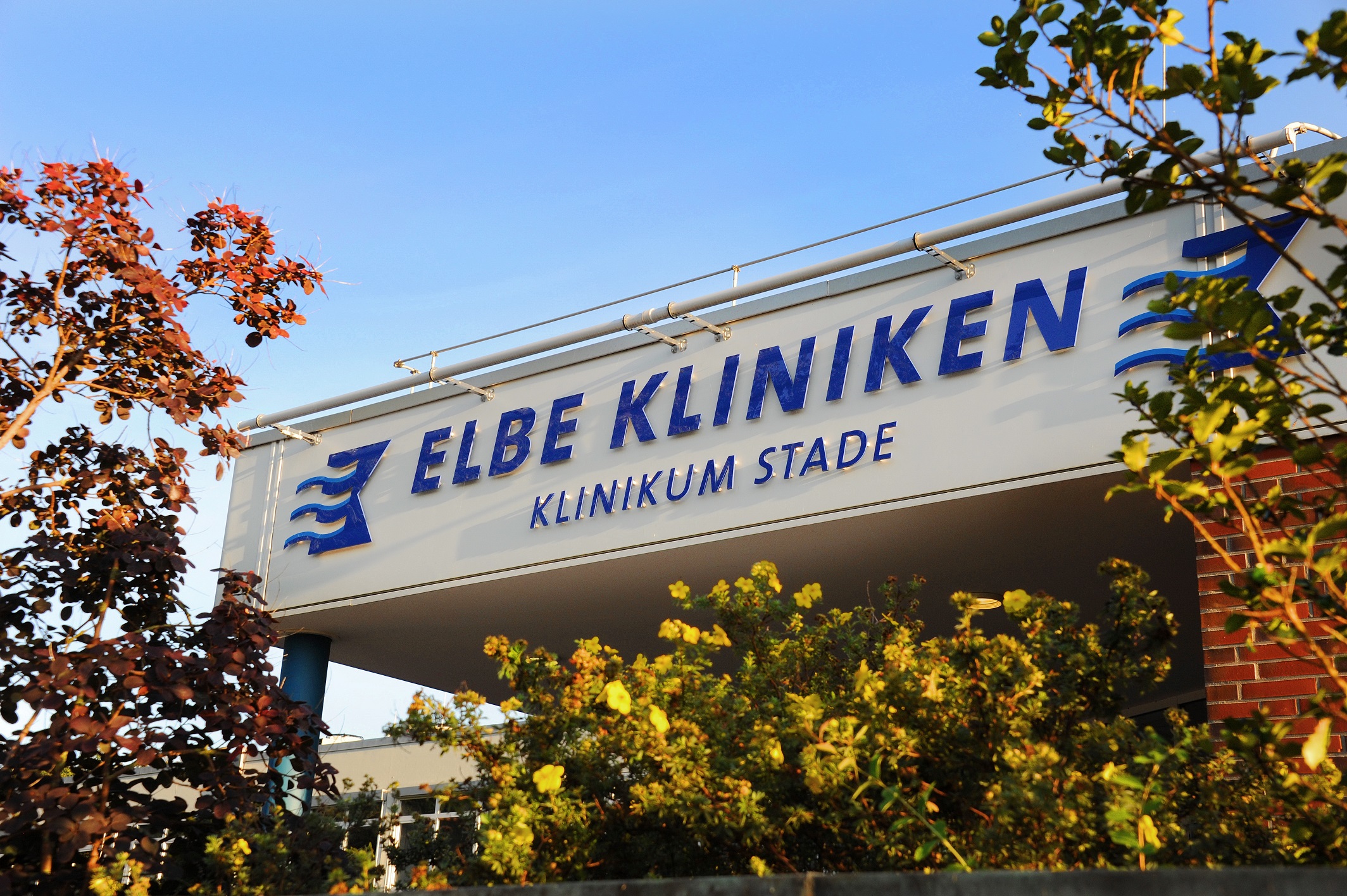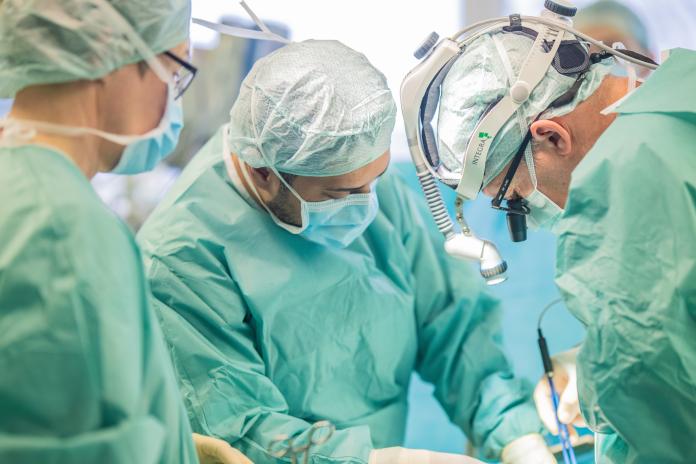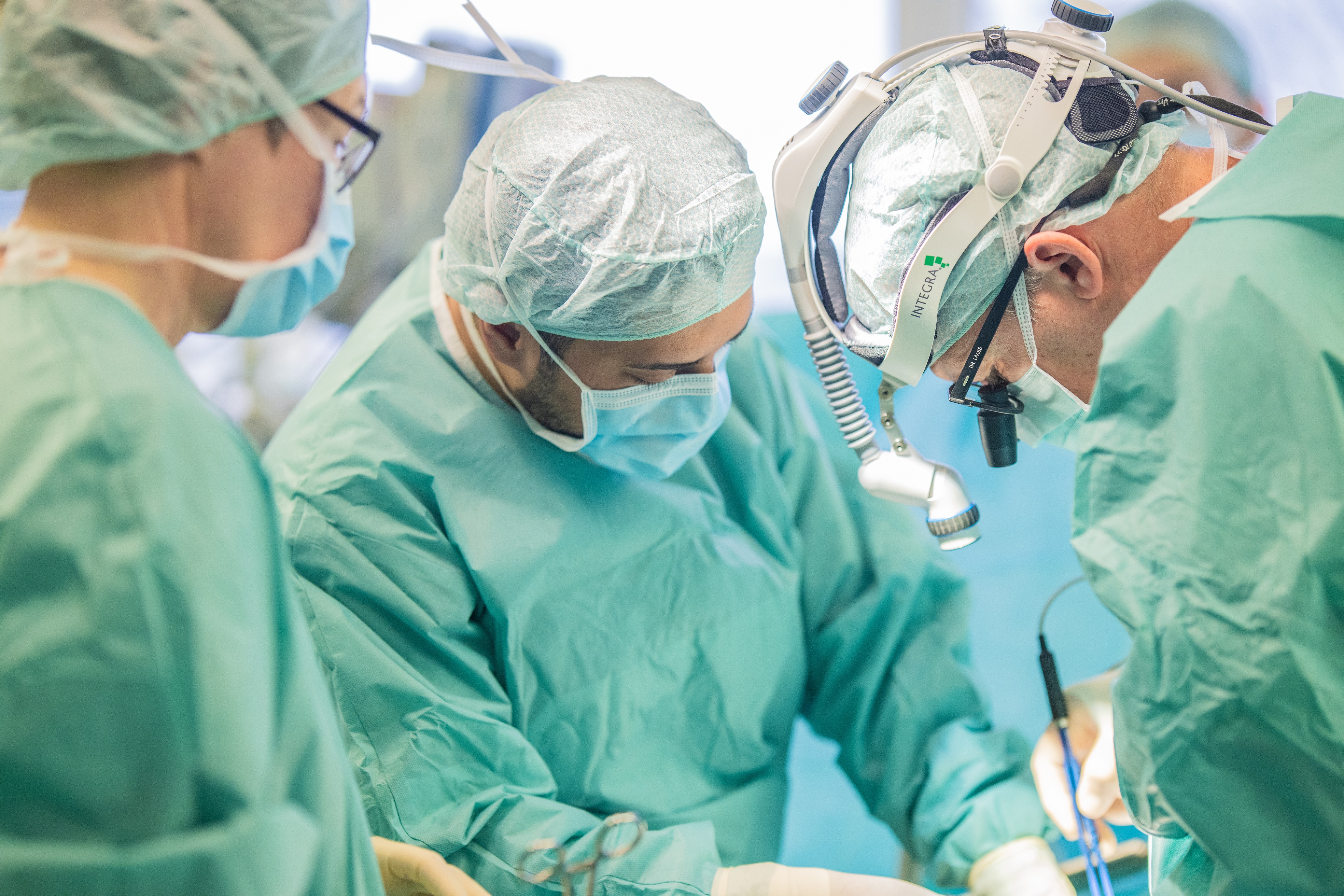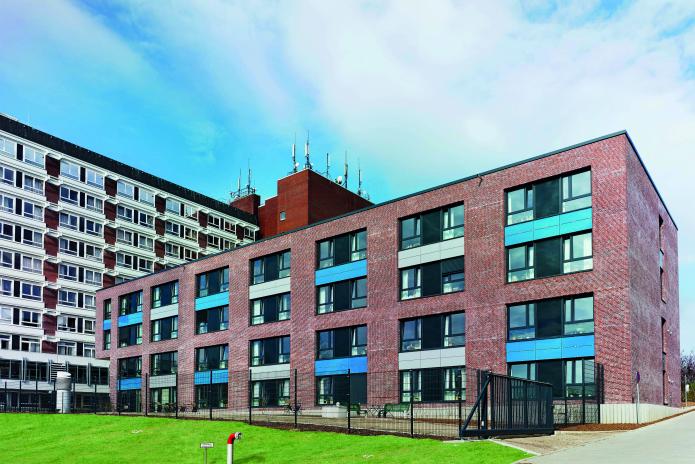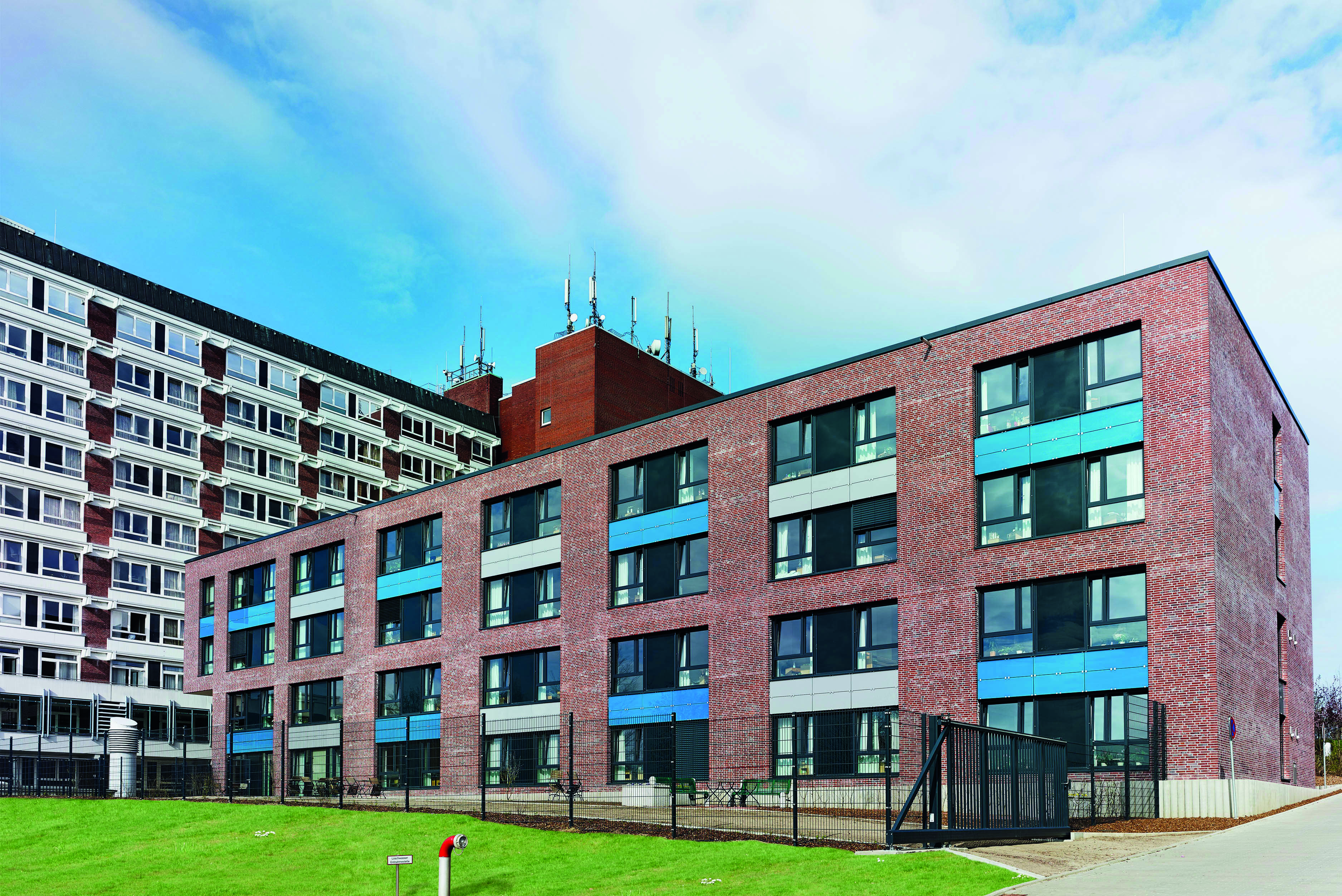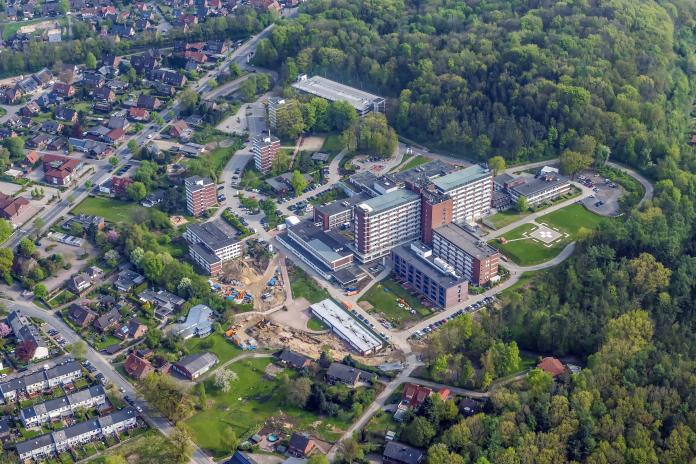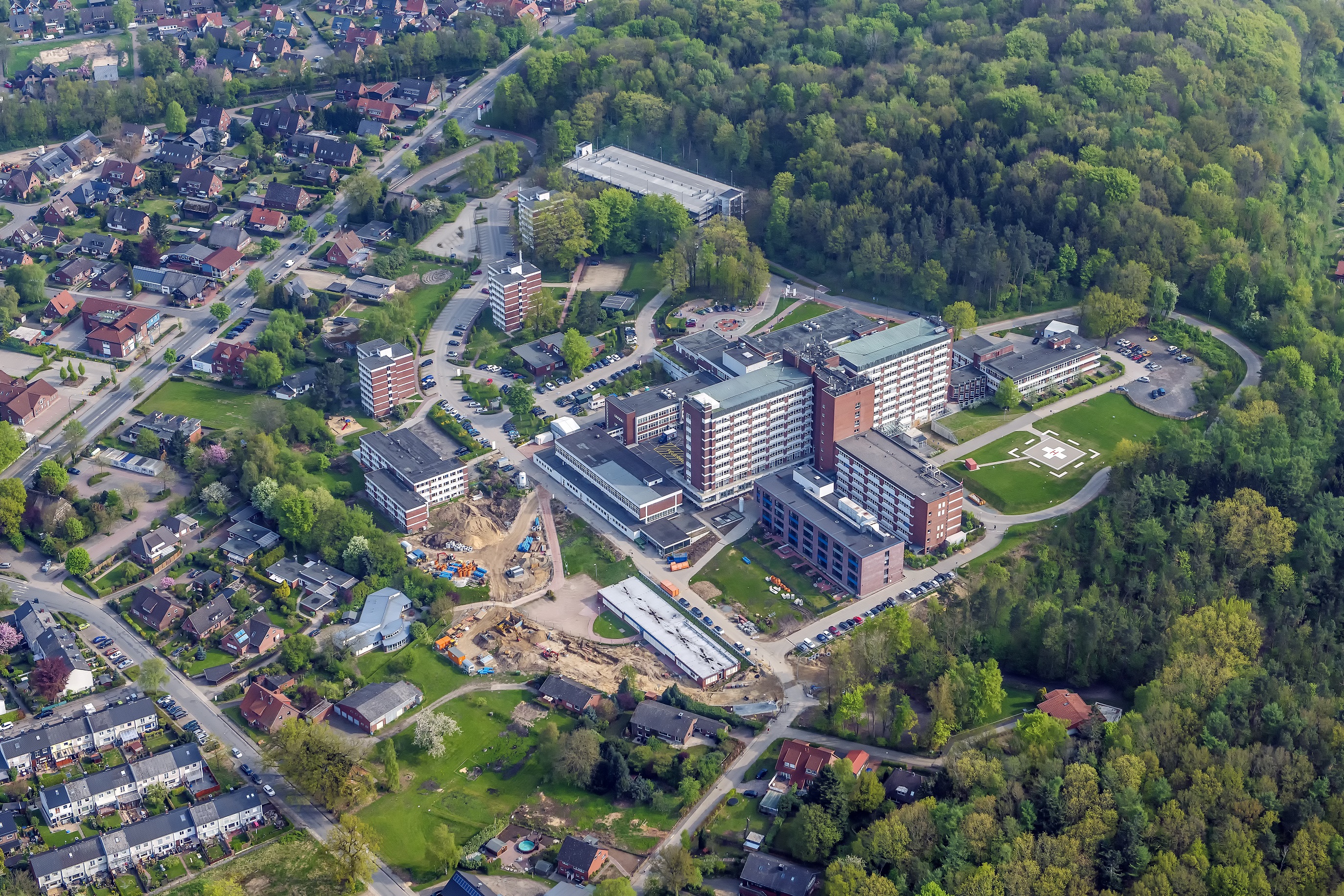RSU Stade Branch
Study medicine at RSU and acquire excellent training
at Elbe Klinikum Stade, Germany!
Over the last few years, Rīga Stradiņš University (RSU) has developed a strong collaboration with Elbe Klinikum Stade (EKS), which provides our German students with opportunities to complete a wide range of clinical courses successfully. Based on our students’ high ratings of their experiences in Stade, both RSU and EKS decided to extend their collaboration by offering our students a unique possibility to undergo full clinical training at EKS starting from the 4th study year. We invite you to explore the opportunities at EKS below.
German students currently form more than 20 percent of the RSU international student community. Every year, RSU receives more than 400 applications from Germany and enrols around 200 German students. Students from Germany form one of the largest international student groups at RSU. In response to the needs of our German students, we have identified an experienced partner in Germany and established this collaboration with EKS.
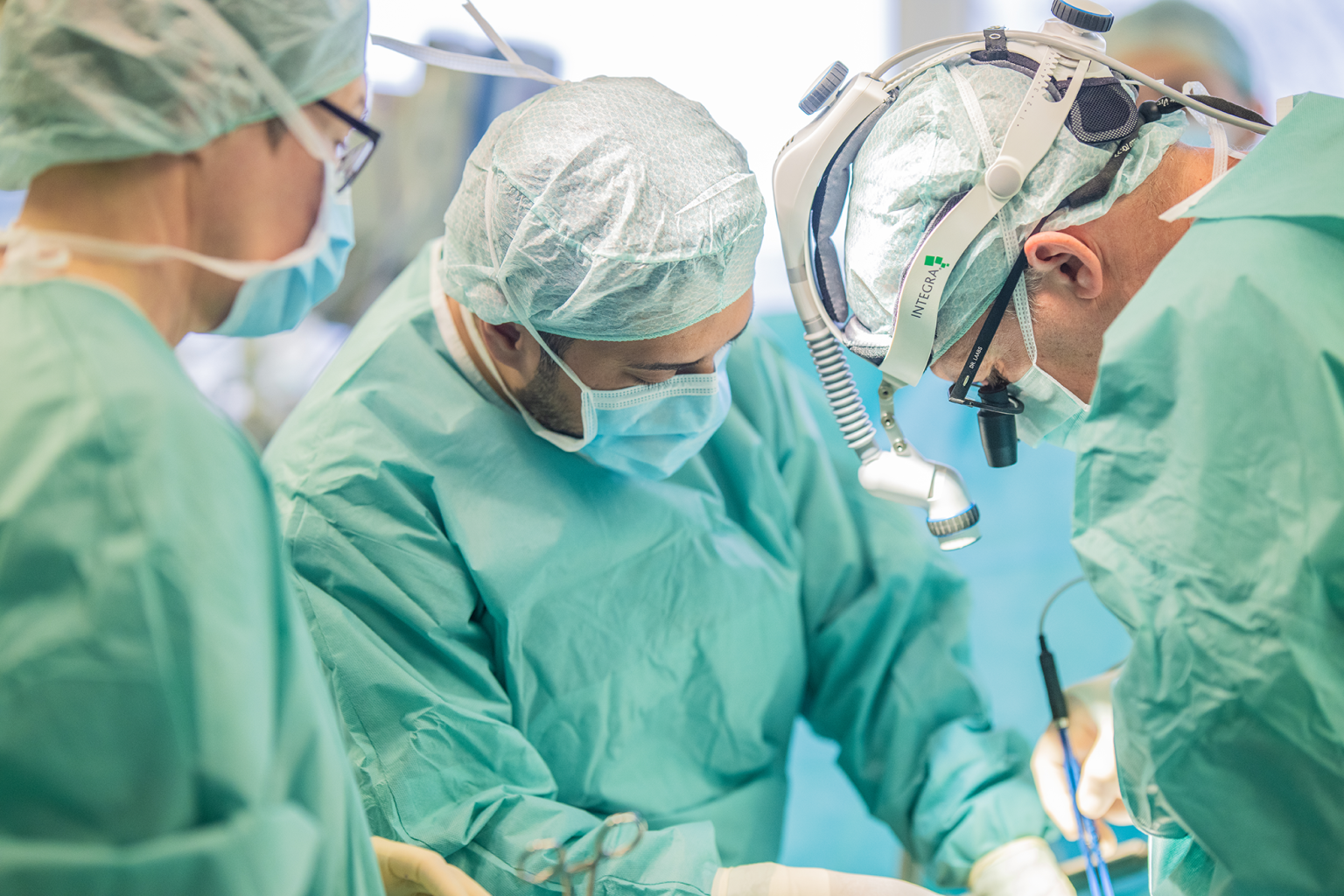
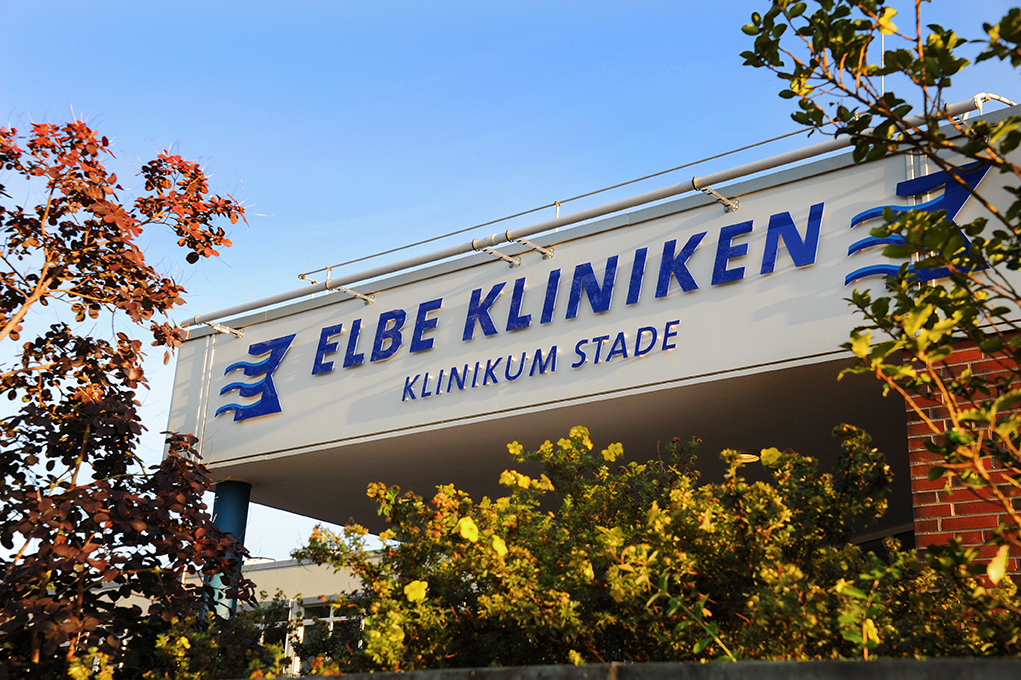
About EKS
This section is currently being updated. Information will be available soon.
Studies at RSU EKS Branch
- Course Structure
Study years 1-3 are completed at RSU in Riga, whereas students spent their second part of the study programme (years 4-6) at EKS. The study process concludes with a State Exam in Riga.
More details about each stage of the studies are provided below.
Preclinical studies (study years 1-3) at RSU in Riga
The first three years of studies take place in Riga. This is the preclinical part of the studies that covers theoretical basics and a two-week summer nursing internship.
Study years 1-2
Students gain a general understanding of the human organism and its functions by taking such subjects as anatomy, histology, embryology, molecular biology, physiology, medical chemistry and biochemistry, as well as humanitarian sciences - philosophy, psychology, and language studies.
Study year 3
During this year, students gain comprehensive knowledge about medical disciplines related to pathological conditions and processes. They are also introduced to the basic clinical disciplines. Subjects taken involve pathology, radiology, pharmacology, introduction to clinical medicine, genetics, basics of clinical care, basics of rehabilitation, clinical microbiology and general surgery that provides a deeper understanding of diagnosis and patient examination. Students’ practical skills are developed in simulated settings at the RSU Medical Education Technology Centre.
Clinical studies (study years 4-5) at EKS in Stade
Studies take place at EKS in a clinical setting where students acquire theoretical knowledge and practical skills by working with patients in almost all fields of treatment. Theoretical knowledge is provided by RSU departments and e-learning resources. Tests, colloquiums and exams are taken at EKS under close supervision by RSU departments in Riga.
Internship and State Examination (study year 6) at EKS in Stade and RSU in Riga
During the final year, students undergo practical training in three clinical rotation cycles:
- internal diseases,
- invasive medicine, and
- a cycle that students can choose from a list of other clinical rotation cycles provided by EKS.
Upon the completion of the clinical rotation cycles, students are well-prepared for general practice in medicine under the supervision of a qualified medical specialist. Students are also required to defend a scientific paper. The study process concludes with the State Examination in Riga- a three-day final examination with the theoretical (written), simulation (practical), and patient contact (practical/oral) stages.
- Graduation and diploma
Upon successful completion of the Medicine study programme, students receive a diploma of Medical Doctor (M.D.) that is issued by RSU.
- Quality Assurance
RSU continuously monitors that the contents of the study programme correspond to the internal and external laws and regulations, labour market requirements, industry development trends, and the needs of the students. The University conducts regular data gathering and analysis to strengthen the study programme.
For more information about quality assurance, please contact Ieva Lejniece, Head, RSU-Stade Partnership.
Admissions
The application process to the programme at EKS is the same as that for other international students. Please visit our Admissions page.
Learn more about RSU and EKS
Join one of our Open Days in person in Riga and/or online.
About Stade
Accommodation in Stade
Stade is a beautiful Hanseatic city offering privately rented apartments across various categories. Affordable accommodation is available through Wohnstätte Stade; special offers not listed on the website may be available to students upon request through the Neurology Secretariat.
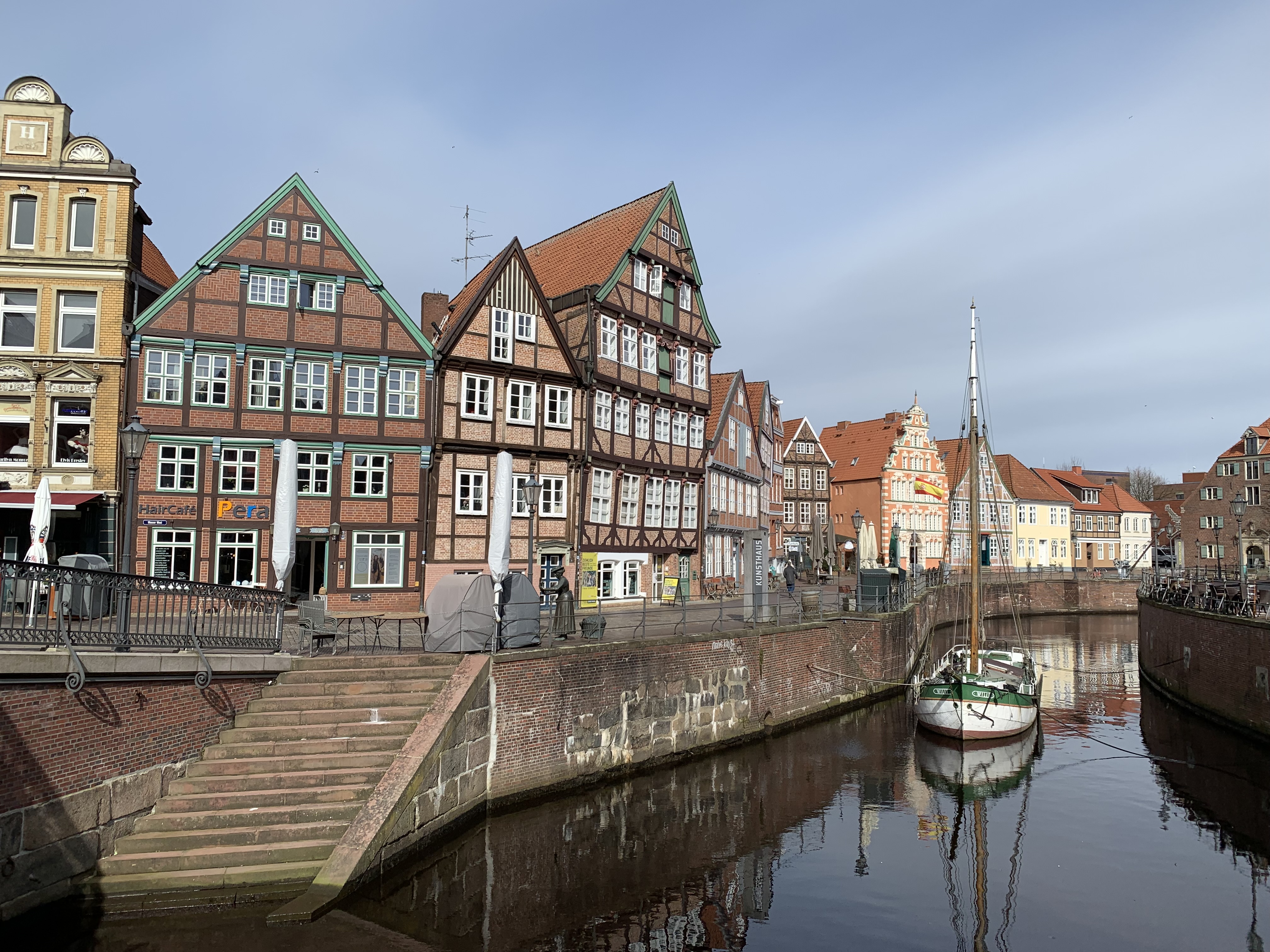
Many students have found privately rented single or shared apartments. On average, current students pay around 370 € rent in a shared apartment (including utilities).
Living in Stade’s historic Old Town, with its charming bars and cafés, has a special allure. Other recommended districts include the residential areas of Hohenwedel, Hahle, and Kopenkamp, known for their pleasant atmosphere and proximity to the EKS.
While there are plans to create student dormitories in Stade in the future, these are unfortunately not yet available.
- Travelling to Stade
Due to its proximity to Hamburg, the second-largest city in Germany, travelling to Stade is convenient.
By Train
Stade is well-connected to Hamburg’s commuter rail system. The S5 line runs every 20 minutes during the day, taking about one hour to reach Hamburg Central Station, where both local and long-distance trains to various destinations are accessible. Additionally, Stade is a stop on the RE5 railway line, which runs from Hamburg-Harburg to Cuxhaven. This route is a convenient option for those wishing to travel to the North Sea. The excursion train “Moorexpress” operates on weekends and connects Stade with the Teufelsmoor nature reserve and the city of Bremen.
By Car
Stade is connected to the Autobahn system via the A26. Although construction on the final stretch to Hamburg is still underway, it is expected to be completed by 2025.
By Plane
The closest international airport is located in Hamburg-Fuhlsbüttel, accessible by public transport in 1 hour and 45 minutes. Bremen Airport, which offers inexpensive flights to many destinations in Europe, is reachable in a little more than 2 hours by public transport.
- Getting around Stade
Stade is a very bike-friendly town, with dedicated bicycle lanes, including one that directly connects the Old Town with the hospital along the beautiful Schwingewiesen.
Buses are available throughout the town and operate within the framework of the Hamburg commuter system (HVV).
Given the small size of Stade, many students find walking to be a convenient way to get around, especially within the picturesque town centre.
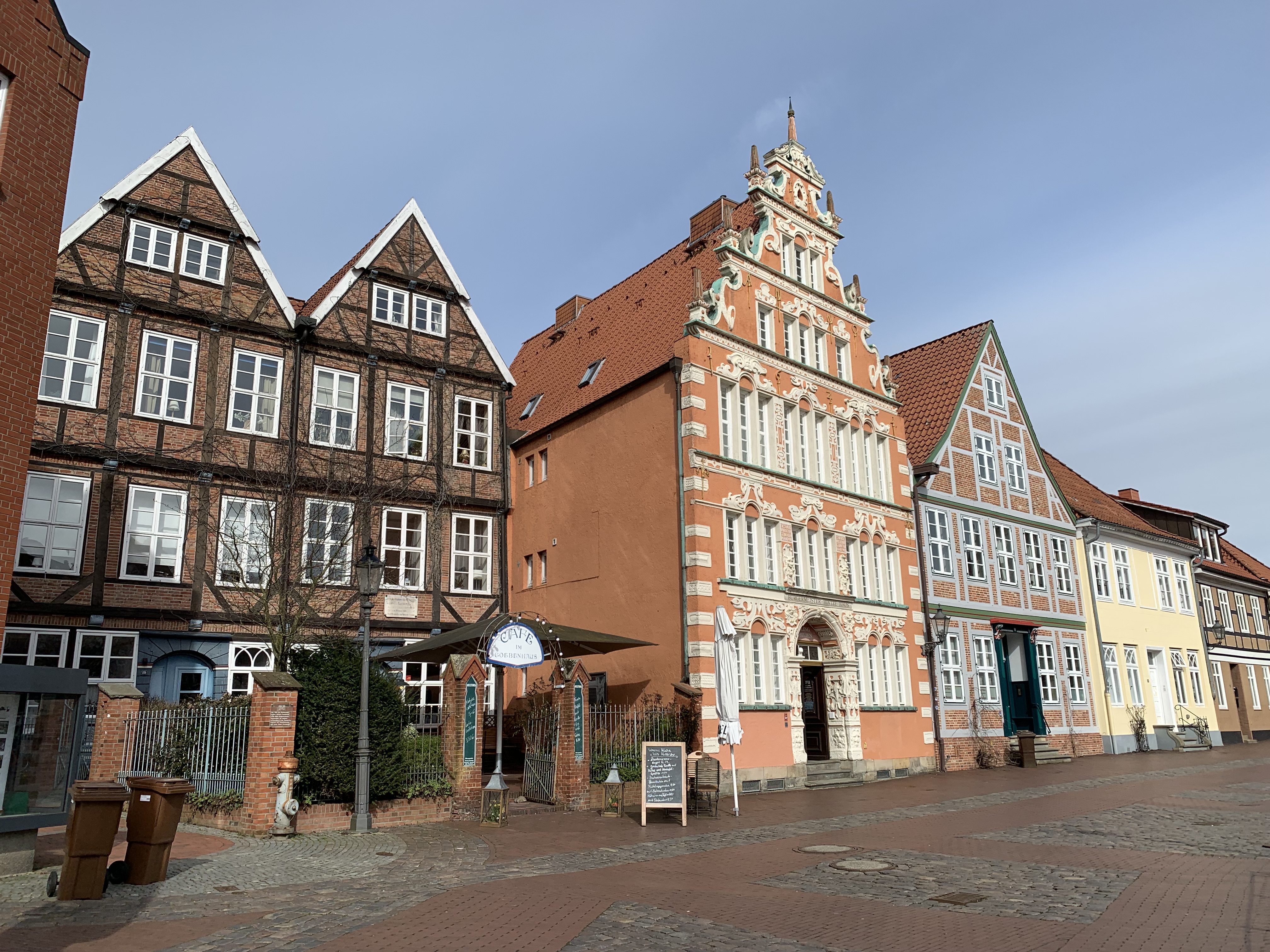
Meet our students
- Laurence Dietze (RSU 5th-year student, Medicine study programme)
Laurence Dietze
RSU 5th year student, Medicine study programme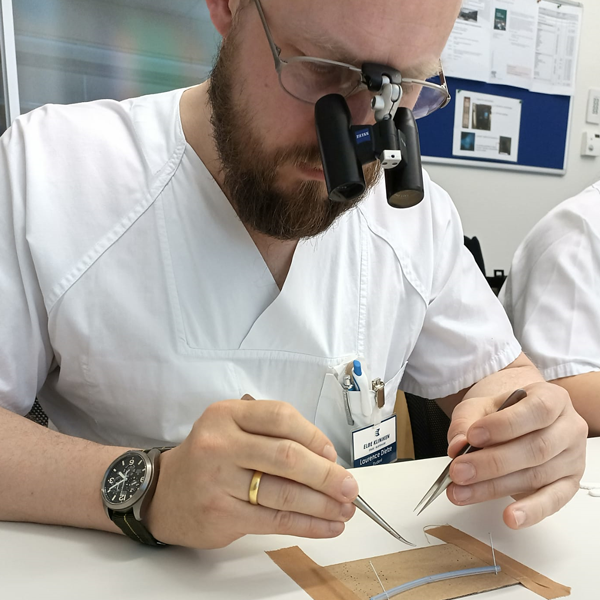
Apart from the tremendous practical experience we gained and the ease to communicate with patients in German, so many life-changing events happened to me in just the first year of the exchange program: I started working on my PhD thesis with Prof. Schmidt, Head of the Neurology Department in Stade, I received a scholarship from the Stade district, and my son Hinnerk was born in Stade, in the very hospital we study and work in. Having seen how this programme encourages students to make the most of their opportunities, I would like to facilitate this exchange even when I’m working as a doctor in the Stade hospital and continue building bridges between Stade and Rīga.
- Lydia Aberspach (RSU 5th year student, Medicine study programme)
Lydia Aberspach
RSU 5th year student, Medicine study programme (Berlin, Germany)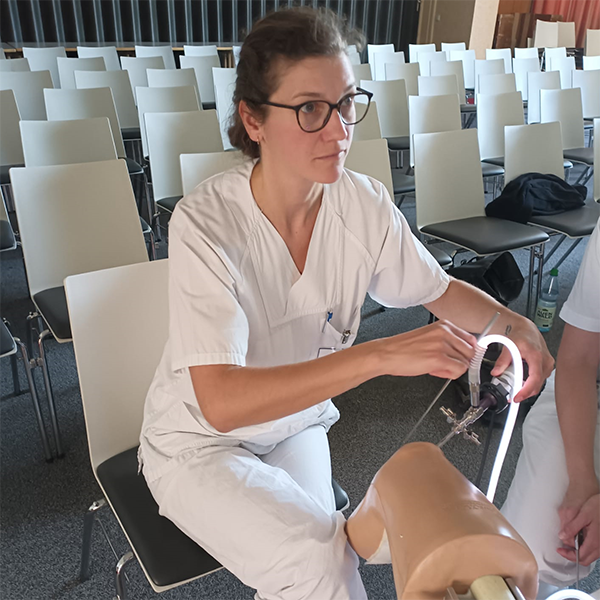
When I first got to know about the opportunity to take part in a pilot project between RSU and Elbeklinikum Stade one year ago, I felt so very lucky! This new cooperation was a chance for me to combine the medical studies in Rīga with in-depth practical training at the hospital: daily contact with patients, skill training in physical examination and sonography, routine in taking anamneses (in German language - my mother tongue). Moreover, after the end of studies there is the opportunity to work at the Elbeklinikum Stade. In my opinion, this project is the very best opportunity to prepare for your residency (post-graduate studies, specialisation training) after studies – you will gain confidence in basic examination techniques in medicine and experience in evaluating the condition of patients. And last but not least, you can still enjoy the atmosphere of a Hanseatic city of Stade with its beautiful historic centre, harbour, good food and a nice beach.
- Helena Link (RSU 5th year student, Medicine study programme)
Helena Link
RSU 5th year student, Medicine study programme (Munich, Germany)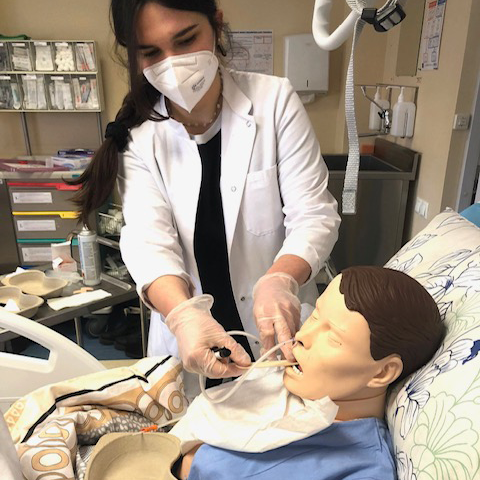
A year ago, I had the opportunity to participate in a pilot project between RSU and Elbe-Klinikum in Stade. I'm very happy that I took this step, as I've learned so much over the past year. The staff at Elbe-Klinikum are not only kind and open but also take great care of us - students. Since the student groups are small, we receive excellent support, and a lot of time and effort is dedicated to each of us. The classes, usually taught by the head physicians, are very practice-oriented and thorough. The patient-based teaching boosts your confidence in interacting with patients, examining them, and familiarizing yourself with everyday hospital work. I believe my time here has prepared me very well, not only for the RSU final state exam but especially for the time of residency (post-graduate studies, specialisation training). Stade itself is a very beautiful and charming historic town with proximity to the Elbe beach and numerous opportunities for leisure and outdoor sports. Its closeness to Hamburg offers all options, especially when it comes to taking time off the studies and practical training.
- Paul Damsch (RSU 5th year student, Medicine study programme)
Paul Damsch
RSU 5th year student, Medicine study programme (Osnabrück, Germany)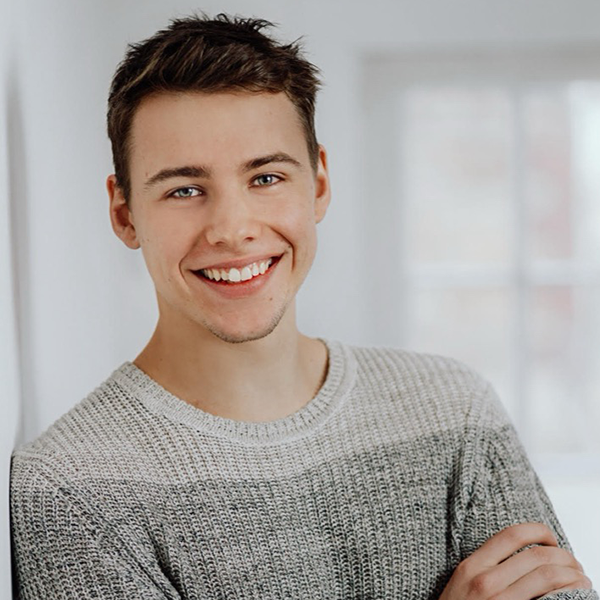
With hands-on practical training using highly advanced equipment, learning how to communicate with patients, and insights into various specialities, it is difficult to decide which aspect of my education at Elbe-Kliniken Stade stands out the most. The classes not only impress with their up-to-date theoretical training, which is usually taught by the head physicians themselves or highly motivated senior physicians but also with their very practical teaching approach. Through suturing classes, workshops with prosthesis and arthroscopy companies, ultrasound training, examination courses and firmly scheduled patient teaching (for example in the operating room during our anaesthesiology rotation as well as Ambulance services accompanied by emergency doctors), I have been able to gain an incredible amount of experience in recent months. These classes have prepared me exceptionally well for my medical career and made me more confident in working with patients.
In my free time, besides sports, I also go on bike tours and walks in the Stade region, for example on the Elbe beaches, go climbing in Hamburg or explore restaurants in the area with friends. Thanks to the wide range of experiences here at the Elbe-Klinikum Stade and the proximity to Hamburg and my home town, Osnabrück, I would choose this programme any time again.
Work opportunities
Student employment opportunities at EKS
This section is currently being updated. Information will be available soon.
Career opportunities
This section is currently being updated. Information will be available soon.
